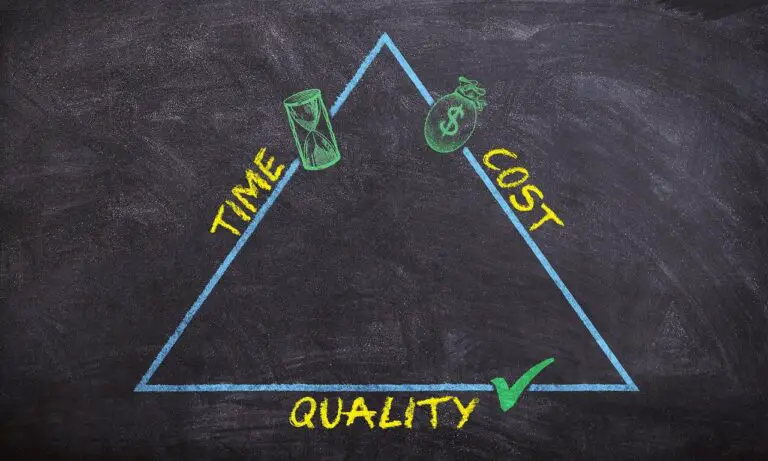If you’re getting into the world of TEFL for the first time, there’s a lot to take in. Certificates, online courses, and job prospects can seem too good to be true, and in some cases, downright shady. So how do you know which providers and employers to trust? Is the whole industry a scam? If you’re asking these questions, you’ve come to the right place.
TEFL as an industry and career path is legitimate. It is a viable option for thousands around the world. Many TEFL certificates and courses are recognised worldwide, but there’s no official accreditation, meaning some are worthless. Most jobs are above board, but any prospective employee should do their research.
I am a TEFL teacher and have been since 2015. I’ve completed two TEFL certificates, and had experiences with legitimate and dodgy employers. In general, as long as you’re careful, you can avoid the worst side of the industry.
If you’re thinking of becoming a TEFL teacher, I really recommend you take a look at my article Big Guide to Starting Out in TEFL: All you need to know. It takes you step-by-step through the whole process, from deciding if it’s right for you, all the way to getting your first job.

What exactly is TEFL? And is it a legit industry?
TEFL stands for Teaching English as a Foreign Language. It’s an acronym that represents one category of teaching, just like STEM (Science, Technology, Engineering and Maths) or HE (Higher Education).
It isn’t a company or entity. Nobody owns or controls it – it’s a type of job. A TEFL teacher is just someone who teaches English in a non-English speaking country.

The term can get confused when people say things like “You have to get your TEFL,” or “the job requires a TEFL”. Really, those phrases should say “TEFL certificate”.
The question of whether the industry is legit is like asking if farming is legit, or marketing. Sure, there are questionable practices, but as a whole, you can’t really say any industry is illegitimate.
Is TEFL a legit career option? For many, yes. You can earn enough money to live and often make substantial savings in countries all around the world. Thousands of people have thrived as TEFL teachers. It’s challenging, broadens your worldview, and extremely rewarding.
Find out why people get into TEFL by reading my article: Why Do People Do TEFL? 9 Reasons to get started now.
It’s not for everyone, but it’s a perfectly legitimate job.
However, with certain aspects of TEFL, you do have to be careful.
Are TEFL certificates legit? Why do I need one and are they a scam?
The TEFL certification industry is big. Type in “TEFL certificate” in Google and you’ll see all the different companies offering their courses and certificates, each bidding for your custom.
A TEFL certificate is a minimum requirement for most TEFL jobs around the world. To get one, you have to complete a course. Each course provider has its own curriculum and assessment, but all award some form of certificate at the end.
The problem is, there’s no global accreditation system.
While some entities like the British Council have their own accreditation, it’s limited to courses they provide and approve – a tiny section of the overall spectrum.
Without global systems for accreditation, anyone can sell TEFL certificates. In fact, you can find them online for very little money, or even for free. These are scams.
Well, technically, they aren’t illegal. But they’re a waste of time and money.

The reason is, although TEFL certificates aren’t accredited, the best providers have recognition and reputation. They’re big names, so employers trust them. Many even have government backing.
If you’re looking for great value TEFL certificates, I recommend International TEFL and TESOL Training. Click the link for 15% off all courses (I receive compensation, so you’re supporting me, too). Not convinced? Read why I’d choose ITTT over other TEFL course providers.
Some random company who gives easy certificates away for hardly any money will have little or no international recognition. As a result, potential employers may not accept the qualification.
So how do you know which ones are scams? That’s where things get murky. The best way to know for sure is to research each provider, reading other people’s reviews and experiences.
And perhaps think twice about going for the cheapest option. If you choose a low-cost provider and it prevents you from getting a job, you’ll regret it.
Another thing to consider is the length of the course. TEFL providers will try to sell you on all types of courses, but anything under 120 hours is money down the drain. 120 hours is the minimum requirement for most places. Ideally, you’ll want more.
A good option is a 168-hour Level 5 course, as is anything with real teaching practice.
To learn about the different types of TEFL certificate out there, check out my article: What is the Best TEFL Certificate? Guide to choosing right.
Are TEFL jobs legit? How can you spot a scam?
I started my TEFL career in Madrid, working 40 teaching hours a week on an unpaid internship, in return for accommodation and a TEFL certificate at the end.
The contract was for 3 months, so I worked around 480 hours. Considering rent would have cost 500 euros per month, that worked out at 3 euros an hour.

Scam? By the letter of the law, no. But it didn’t take me long to realise I’d been swindled. I quickly jumped onto the Auxiliares de Conversación program, where I earned just over 15 euros an hour (16 hours a week) and had full school holidays.
The experience opened my eyes to the TEFL industry – there are a lot of dodgy companies out there.
A strategy I’ve noticed is for these companies to open up shop, trick gullible young people into working for them, then close down after 6 months, before word gets out. Then they open under a new name and start the cycle again.
Like I said, it may not be illegal, but it’s certainly exploitative.
On the other side of the coin, there are plenty (a majority) of totally legit language academies, private schools and government programs which pay great wages and treat their employees with respect.
So that begs the question, how do you spot the scammers?
Again, the answer comes down to research. Look online for people who have worked there, how long the company has been in business for, and figure out what your hourly wage will be. If you can’t find these things, perhaps look elsewhere.
I’ve written several articles on how much TEFL teachers earn in different countries, so use those guides as a comparison for any potential jobs.
Conclusion
Stepping into any new industry comes with some element of risk. TEFL is a particularly daunting world since you’re dealing with courses and jobs in other countries which may have different standards and practices.
But don’t worry too much. TEFL careers have provided legitimate income for many thousands of people, including myself. Scammers and exploitative companies are part of life. Do your research and trust your common sense, and you’ll be fine.
To learn more about becoming a TEFL teacher, you should definitely read my other articles:
Big Guide to Starting Out in TEFL: All you need to know
Is TEFL Teaching Hard? A guide to whether TEFL is right for you
What Are EFL/ESL Classes Like For Teachers?
Is TEFL Legit? Guide to trustworthy certificates and jobs
Do You Need a Degree to Work as a TEFL Teacher?
How to Pick the Right TEFL Destination: 5 steps to success
What Type of TEFL Teaching is For You? Jobs explained
What is the Best TEFL Certificate? Guide to choosing right
TEFL vs. CELTA: What’s the difference? Which is best?
10 Steps to Passing Your TEFL: Study and assignment tips
Is There an Exam for TEFL Courses? What you need to pass
Which TEFL Course Provider to Choose? Why my pick is ITTT
Is it Hard to Get a TEFL Job? Tips on finding employment








